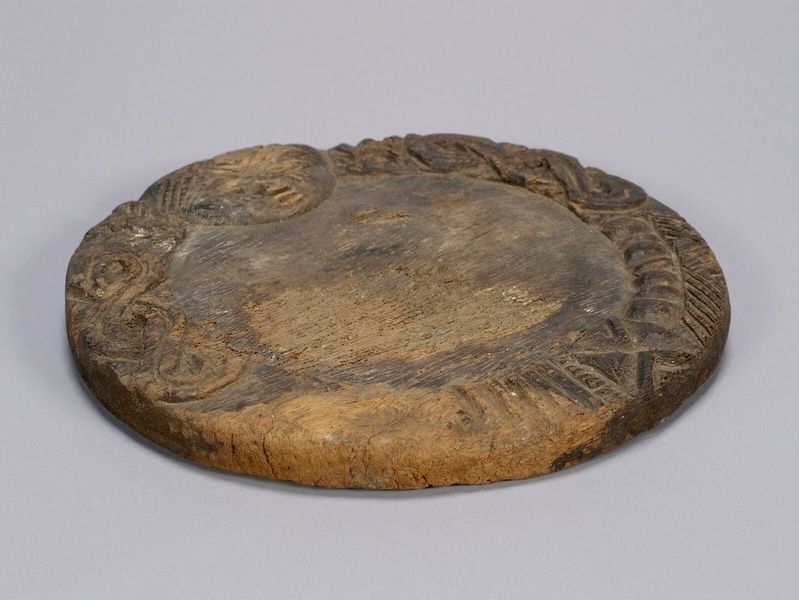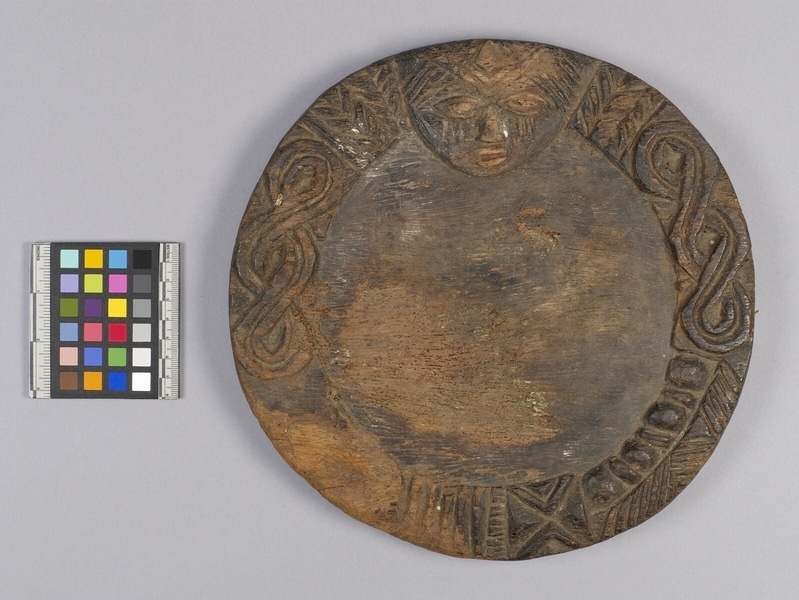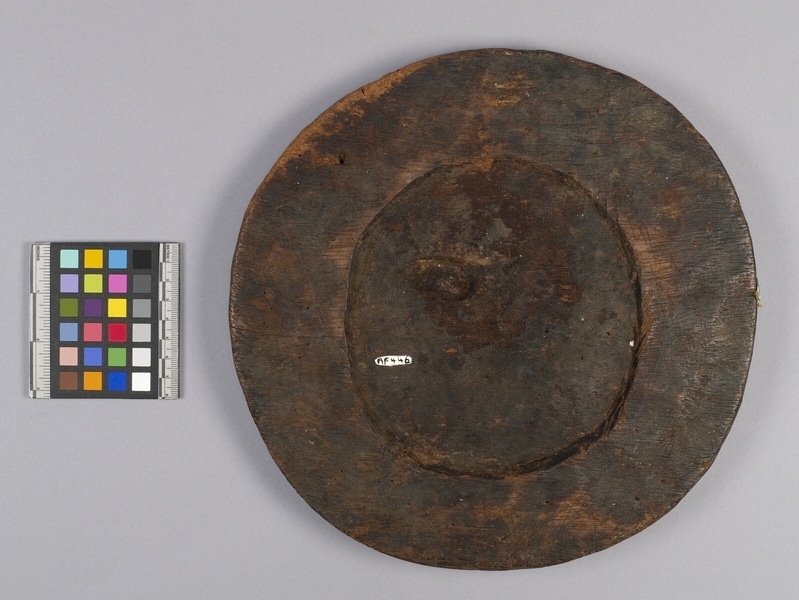Divination Tray Item Number: Af446 from the MOA: University of British Columbia



Description
Ifa divination tray. Round wooden tray with encircling border of a carved face with an intertwining circular pattern on either side, interspersed with a geometric design. One side and the centre are worn. Underside has a plain border with indented centre and finger hole.
History Of Use
The Ifa divination system is practiced among Yoruba communities in west Africa, and by the African diaspora in the Americas, the Caribbean, and around the world. The word Ifa refers to the mystical figure Ifa or Orunmila, regarded by the Yoruba as the deity of wisdom and intellectual development. Ifa divination makes use of an extensive corpus of texts and mathematical formulas, and relies on a system of signs that are interpreted by a diviner: the Ifa priest or babalawo, literally “the priest’s father.” The Ifa divination system is applied whenever important individual or collective decision has to be made. The Ifa literary corpus is called odu. It consists of 256 parts, each divided into verses called ese, whose exact number is constantly increasing (there are around 800 ese per odu). Each of the 256 odu has its specific divination signature that is determined by the babalawo using sacred palm nuts and a divination chain. The ese, considered the most important parts of Ifa divination, are chanted by the priests in poetic language. They reflect Yoruba history, language, beliefs, cosmovision and contemporary social issues.
Iconographic Meaning
The head at the top of the tray represents Eshu, an orisha (spirit) who is a trickster and who acts as a mediator between mortals and Orunmila, the deity of wisdom associated with order, equilibrium and personal destiny.
Narrative
According to the collector's notes, this tray and wand (Af447) were used by a 'babalawo' in Abeokuta, Nigeria. The priest was the father of Ukini, a thorn carver.
Item History
- Made in Nigeria before 1972
- Collected during 1972
- Owned by Andrew Stewart and Jessie Stewart before February 8, 1980
- Received from Andrew Stewart (Donor) and Jessie Stewart (Donor) on February 8, 1980
What
Who
- Culture
- Yoruba
- Previous Owner
- Andrew Stewart and Jessie Stewart
- Received from
- Andrew Stewart (Donor) and Jessie Stewart (Donor)
Where
- Holding Institution
- MOA: University of British Columbia
- Made in
- Nigeria
When
- Creation Date
- before 1972
- Collection Date
- during 1972
- Ownership Date
- before February 8, 1980
- Acquisition Date
- on February 8, 1980
Other
- Condition
- fair
- Accession Number
- 0590/0013 a